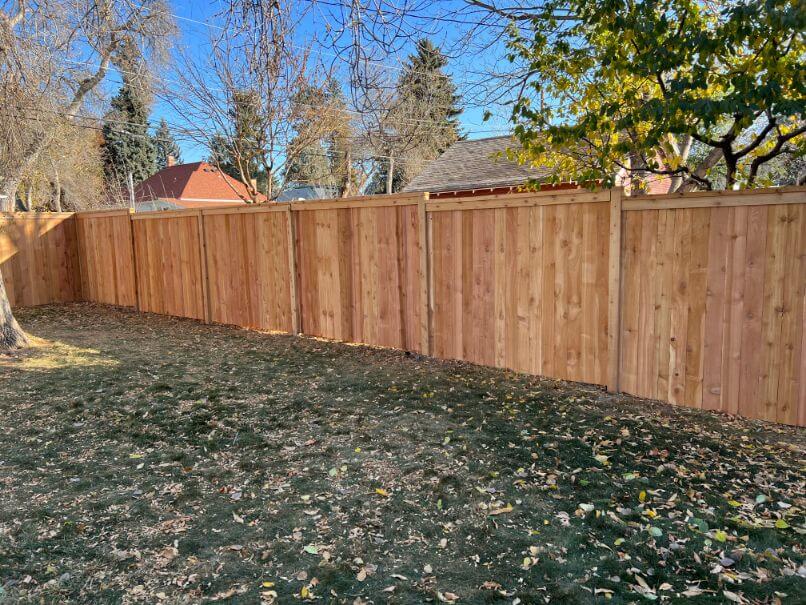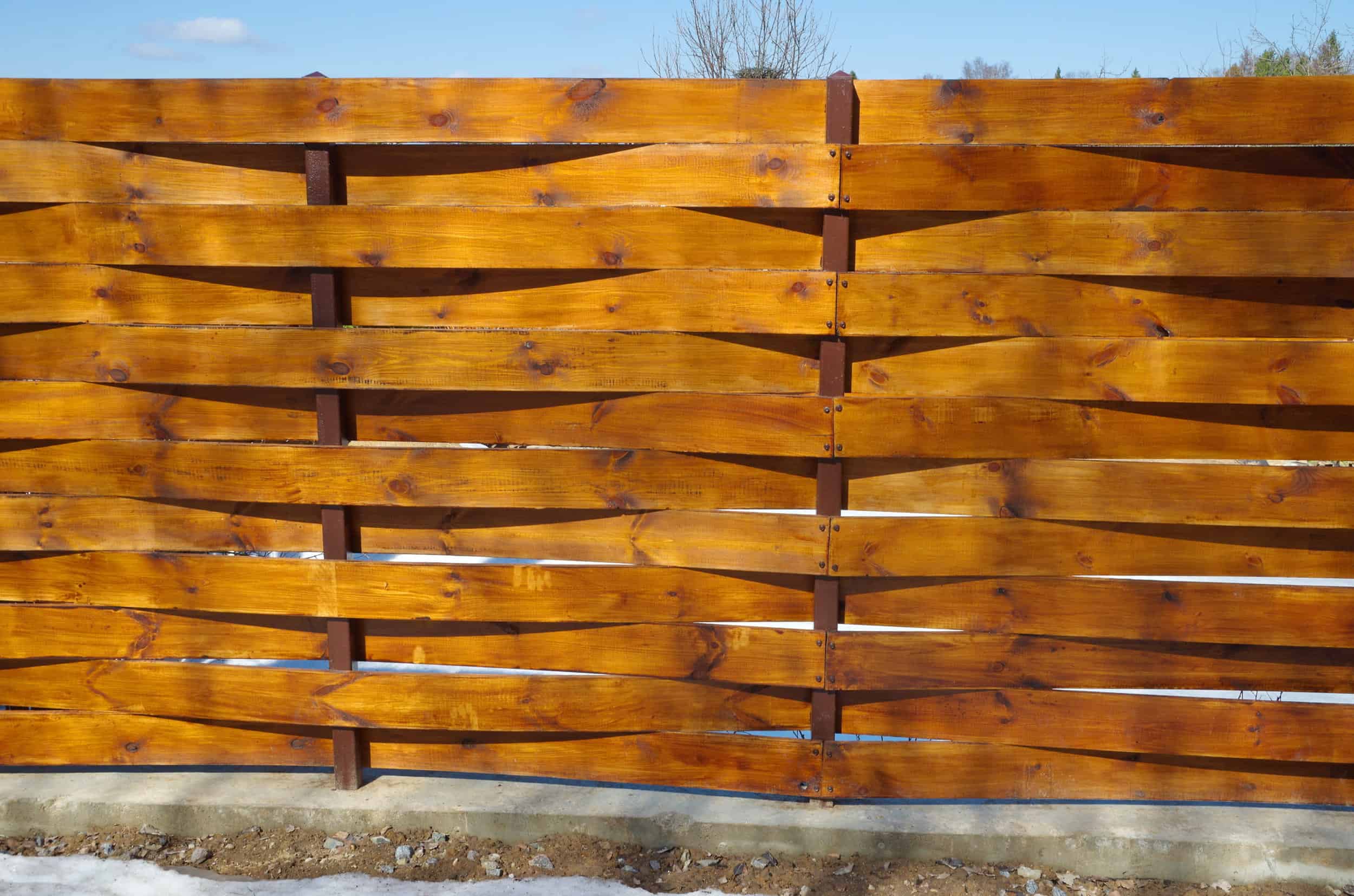All Categories
Featured
When selecting a fence for your building, it's necessary to consider variables like cost, longevity, upkeep, and visual allure. Three of one of the most prominent products for business and household fencings are vinyl, aluminum, and timber. Each offers one-of-a-kind benefits and some downsides, making it important to assess your demands before making a decision. Listed below, we compare the pros and cons of these products to assist assist your option.
Wood Secure Fencing. Pros:
![]()
Natural Visual: Wood fences are known for their classic, all-natural appearance. They can conveniently mix into a lot of landscapes and boost the appeal of your home or company. Whether you're intending for a rustic look or a more sleek finish, wood can be customized with paint, stain, or sealer. Personalization: Wood is just one of the most functional products, permitting a variety of styles, such as picket fences, privacy fences, and ranch-style rooms. It's easy to change the layout to fit the particular requirements of your home. Inexpensive: Typically, timber fencings come with a reduced preliminary cost contrasted to plastic or aluminum, making them an economical choice for those on a budget plan. Disadvantages:
Upkeep Requirements: Wood fences require normal upkeep to maintain their beauty and capability. This consists of discoloration or painting to shield versus rot, termites, and weather condition damages. Without correct care, wood can deteriorate over time. Much Shorter Lifespan: Compared to plastic or light weight aluminum, wood fencings often tend to have a much shorter life expectancy, specifically in locations with extreme weather. Harsh conditions, such as hefty rainfall, moisture, or snow, can create timber to deteriorate faster. Prone to Damages: Wood fencings are susceptible to damage from parasites, including termites, along with natural wear from weather condition. They may also warp or crack if not effectively maintained. Vinyl Fencing. Pros:
Reduced Upkeep: Among the major advantages of plastic fences is that they require minimal maintenance. Unlike wood, plastic does not require to be repainted, sealed, or discolored. It's resistant to fading, staining, and cracking, which saves money and time on maintenance. Sturdiness: Plastic is understood for its capacity to endure extreme climate condition without deteriorating. It's invulnerable to bugs like termites, and its resistance to moisture and UV rays ensures it remains looking helpful for many years. Resilient: A plastic fence can last as much as thirty years or even more, making it an excellent long-term investment. Lots of makers supply guarantees, additionally boosting its worth. Selection of Styles: Vinyl fences are readily available in numerous shades and styles, including those that imitate wood. You can pick from privacy, picket, or decorative styles, giving versatility to match your home or business. Cons:
![]()
Higher Upfront Cost: Plastic fencings often tend to have a higher first expense than timber. While the long-lasting financial savings on upkeep are substantial, the upfront investment might be a deterrent for some property owners. Limited Customization: Vinyl fences been available in standard layouts, and while colors and styles are diverse, you may not have as much adaptability for customization compared to timber. Breaking in Cold Climates: While vinyl is resilient, in very cold climates, it can become weak and crack upon effect, which can be troublesome in locations with severe winters months. Light weight aluminum Secure fencing. Pros:
Low Upkeep: Light weight aluminum fences are known for their low-maintenance requirements. Unlike timber, aluminum doesn't corrosion or wear away, and it doesn't require to be painted or secured. This makes it a wonderful choice for those who desire a problem-free choice. Longevity and Stamina: Aluminum is a robust product that stands well to severe weather problems. It's an outstanding selection for seaside areas where saltwater rust is a problem, as it's immune to corrosion. Visual Charm: Aluminum fencings offer a tidy, elegant appearance, commonly utilized for decorative purposes. They're offered in numerous designs, consisting of ornamental styles, and can include a premium feeling to your residential or commercial property. Safety: Light weight aluminum fences are long lasting and deal terrific protection, particularly when set up with locks or gates. Their tough building supplies a dependable obstacle against unwanted entry. Disadvantages:
![]()
Higher Preliminary Cost: Aluminum fences often tend to be extra expensive than timber, especially if you select decorative styles. The ahead of time cost may be too high for some. Much Less Personal privacy: Aluminum fencings generally have bigger spaces between the slats, which means they supply less privacy than wood or plastic fences. Light weight aluminum might not be the finest option if privacy is a priority. Nicking Issues: While light weight aluminum is rust-resistant, it is prone to flexing or denting if struck with force. A car crash or hefty impact can cause long-term damage to the fencing. Which Fence Product is Right for You? Picking the ideal fencing relies on several factors, including your spending plan, design preferences, upkeep capability, and the atmosphere in which you live. If you want an all-natural look and are prepared for regular upkeep, wood may be the right choice. Vinyl is a wonderful option if low-maintenance and long life are your top priorities. For those that prefer a streamlined, modern-day look with minimal treatment, aluminum offers a long-lasting, safe option.
Inevitably, each secure fencing material has its pros and disadvantages, so it is necessary to evaluate what matters most for your certain requirements. Take into consideration the environment, the degree of privacy you call for, and just how much maintenance you agree to commit to, and you'll discover the ideal fencing for your property.
Wood Secure Fencing. Pros:

Natural Visual: Wood fences are known for their classic, all-natural appearance. They can conveniently mix into a lot of landscapes and boost the appeal of your home or company. Whether you're intending for a rustic look or a more sleek finish, wood can be customized with paint, stain, or sealer. Personalization: Wood is just one of the most functional products, permitting a variety of styles, such as picket fences, privacy fences, and ranch-style rooms. It's easy to change the layout to fit the particular requirements of your home. Inexpensive: Typically, timber fencings come with a reduced preliminary cost contrasted to plastic or aluminum, making them an economical choice for those on a budget plan. Disadvantages:
Upkeep Requirements: Wood fences require normal upkeep to maintain their beauty and capability. This consists of discoloration or painting to shield versus rot, termites, and weather condition damages. Without correct care, wood can deteriorate over time. Much Shorter Lifespan: Compared to plastic or light weight aluminum, wood fencings often tend to have a much shorter life expectancy, specifically in locations with extreme weather. Harsh conditions, such as hefty rainfall, moisture, or snow, can create timber to deteriorate faster. Prone to Damages: Wood fencings are susceptible to damage from parasites, including termites, along with natural wear from weather condition. They may also warp or crack if not effectively maintained. Vinyl Fencing. Pros:
Reduced Upkeep: Among the major advantages of plastic fences is that they require minimal maintenance. Unlike wood, plastic does not require to be repainted, sealed, or discolored. It's resistant to fading, staining, and cracking, which saves money and time on maintenance. Sturdiness: Plastic is understood for its capacity to endure extreme climate condition without deteriorating. It's invulnerable to bugs like termites, and its resistance to moisture and UV rays ensures it remains looking helpful for many years. Resilient: A plastic fence can last as much as thirty years or even more, making it an excellent long-term investment. Lots of makers supply guarantees, additionally boosting its worth. Selection of Styles: Vinyl fences are readily available in numerous shades and styles, including those that imitate wood. You can pick from privacy, picket, or decorative styles, giving versatility to match your home or business. Cons:

Higher Upfront Cost: Plastic fencings often tend to have a higher first expense than timber. While the long-lasting financial savings on upkeep are substantial, the upfront investment might be a deterrent for some property owners. Limited Customization: Vinyl fences been available in standard layouts, and while colors and styles are diverse, you may not have as much adaptability for customization compared to timber. Breaking in Cold Climates: While vinyl is resilient, in very cold climates, it can become weak and crack upon effect, which can be troublesome in locations with severe winters months. Light weight aluminum Secure fencing. Pros:
Low Upkeep: Light weight aluminum fences are known for their low-maintenance requirements. Unlike timber, aluminum doesn't corrosion or wear away, and it doesn't require to be painted or secured. This makes it a wonderful choice for those who desire a problem-free choice. Longevity and Stamina: Aluminum is a robust product that stands well to severe weather problems. It's an outstanding selection for seaside areas where saltwater rust is a problem, as it's immune to corrosion. Visual Charm: Aluminum fencings offer a tidy, elegant appearance, commonly utilized for decorative purposes. They're offered in numerous designs, consisting of ornamental styles, and can include a premium feeling to your residential or commercial property. Safety: Light weight aluminum fences are long lasting and deal terrific protection, particularly when set up with locks or gates. Their tough building supplies a dependable obstacle against unwanted entry. Disadvantages:

Higher Preliminary Cost: Aluminum fences often tend to be extra expensive than timber, especially if you select decorative styles. The ahead of time cost may be too high for some. Much Less Personal privacy: Aluminum fencings generally have bigger spaces between the slats, which means they supply less privacy than wood or plastic fences. Light weight aluminum might not be the finest option if privacy is a priority. Nicking Issues: While light weight aluminum is rust-resistant, it is prone to flexing or denting if struck with force. A car crash or hefty impact can cause long-term damage to the fencing. Which Fence Product is Right for You? Picking the ideal fencing relies on several factors, including your spending plan, design preferences, upkeep capability, and the atmosphere in which you live. If you want an all-natural look and are prepared for regular upkeep, wood may be the right choice. Vinyl is a wonderful option if low-maintenance and long life are your top priorities. For those that prefer a streamlined, modern-day look with minimal treatment, aluminum offers a long-lasting, safe option.
Inevitably, each secure fencing material has its pros and disadvantages, so it is necessary to evaluate what matters most for your certain requirements. Take into consideration the environment, the degree of privacy you call for, and just how much maintenance you agree to commit to, and you'll discover the ideal fencing for your property.
Latest Posts
Reputable Industrial Roof Covering Services by Weathercraft
Published May 25, 25
1 min read
Uncover the Best Auto Repair Coupons in Montclare, Chicago
Published May 23, 25
1 min read
How to Know When Your Car Needs Skilled Car Repair at Montclare Auto Repair
Published May 23, 25
1 min read
More
Latest Posts
Reputable Industrial Roof Covering Services by Weathercraft
Published May 25, 25
1 min read
Uncover the Best Auto Repair Coupons in Montclare, Chicago
Published May 23, 25
1 min read
How to Know When Your Car Needs Skilled Car Repair at Montclare Auto Repair
Published May 23, 25
1 min read